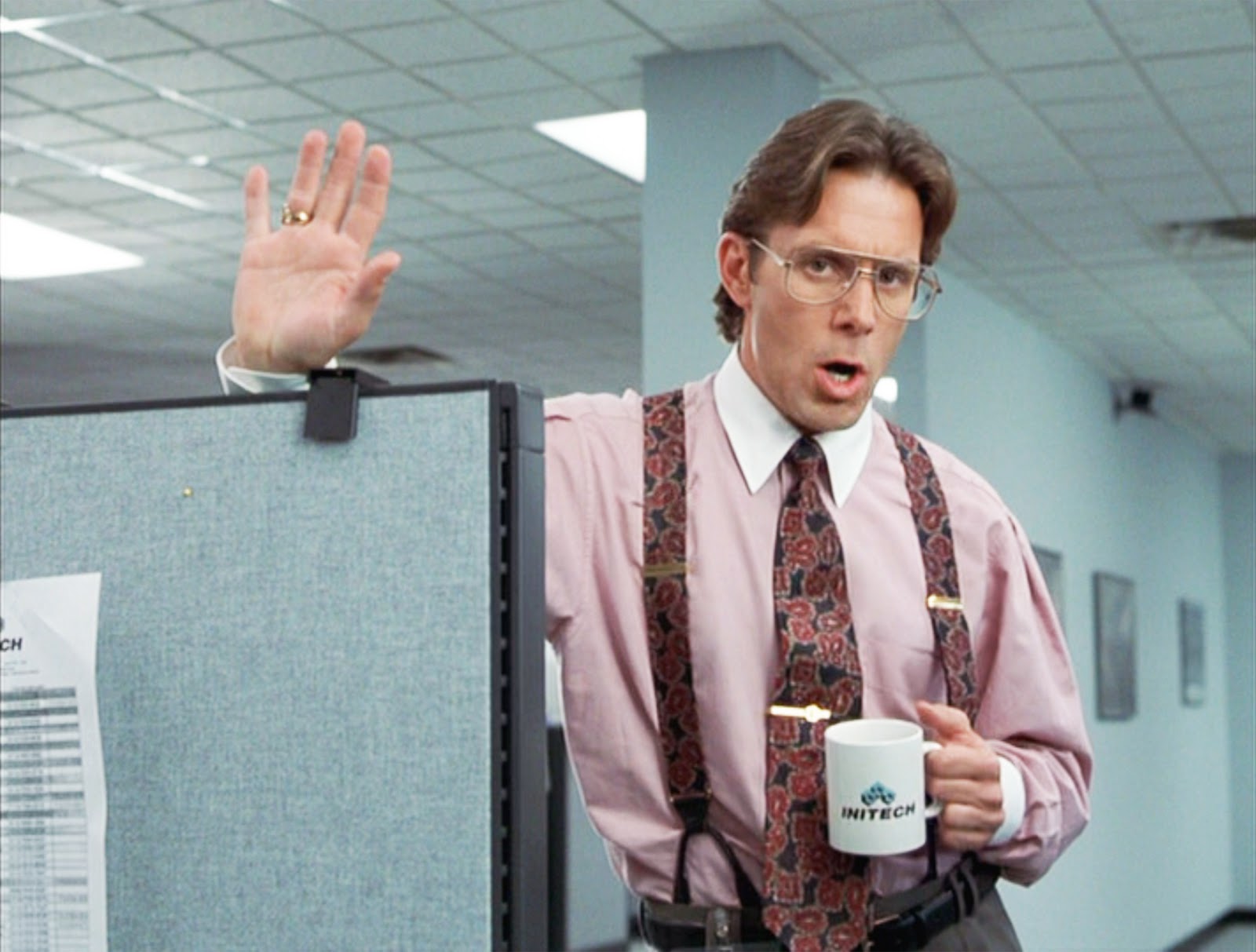Today will be one of the latter, and it's about Office Space.

So Office Space has a reputation as a sort of bro-ish rebellion against a boring conformist world that slowly kills your soul. This can be read in the context of an individualist-hacker-startup ethos that tries to appeal to the common person, but really is a form of libertarian elitism. This is basically the story of the first 20 minutes of the Matrix, after all.
Office Space is not that. Office Space is consistently leftist, in an understated way that provides a lot of its appeal. For instance, the quippy exchange:
PETER: What if we're still doing this when we're 50?
SAMIR: It could be nice to have that kind of job security.
"Boringness of my office life" is not the concern for most workers, but "anxiety over whether I will still have a job in the future" really is.
The sub-plot with Julia and her "flair" was basically talking about "emotional labor" and the degradation of having to perform your personality as part of low-wage subsistence, years before it became popular in academic discussions.
It's also important that Peter's goal is not to start his own start-up, or find some way to escape conformity and become a successful creative worker, but rather to get to spend time working with his hands in construction. Sure, it's dangerous to idealize the harsh reality of manual labor, but it's also valuable to acknowledge "seeing and feeling a real thing actually be built is a part of labor most humans need." This contrasts with the complete pointlessness and obscurity of the programming projects Peter and the others are working on, and relates pretty directly to Marx's analysis of the alienation of labor.
The best part about Office Space though is how the enemy most emphatically is not some bad people with a sinister plot but rather it is systems of exploitation. No one individual is at fault, but submission to the capitalist processes ends up turning everyone into monsters and repressed. Peter's anger is almost always directed not at people, but at systems.
- The idiocy with TPS reports.
- The captialist incentives of the management consultants that necessitate firing many people.
- The banal clockwork of Lundberg.
- The printer with its obscurantist instructions.
- The "Superman 3" plot referencing how mystified systems can lead to broken results.
There are some very annoying managers here, but they aren't sinister or greedy; they're just boring and trying to play by the same rules you're expected to play by.
Finally, all of Peter's resistance to office culture, where he just stops doing his job and fully owns it, is extremely reminiscent of Melville's "Bartleby the Scrivener", which has been famously analyzed by Marxist theorists such as Slavoj Zizek:
To do this we will need a posture of resistance to the American dream. Zizek, in his recent book The Parrallax View points to Melville’s character Bartleby (in the short story Bartleby, the Scrivener: a Story of Wall Street) who began to challenge the demands of his office where he worked with the phrase “I would prefer not to.” For Zizek it is a gesture that provides the posture for a resistance which means something amidst an all the pervasive ideology that seeks to absorb anything we say or do into its own ways. Paraphrasing Zizek, We can imagine the varieties of such a gesture in today’s public space: … There are great chances of a new career here! Join us!” “Thank-you but I would prefer not to.” You must get married in order to have children or you will have nothing to live for “Thank-you but I prefer not to.” You haven’t bought a house? You’re wasting your money. Throwing it down the drain in rent (I can’t tell you how often I heard this in the last decade) “Thank-you but I prefer not to.”
(And of course, in typical Zizekian analysis, the only way for Peter to break out of the system to this sort of resistance is not through willpower and awareness-raising, but through a traumatic break from his daily existence - represented by the bungled hypnotherapy session - that abruptly puts him outside the system.)
***
Post-finally, I might want to contrast with Marxist essays like this one at Truth Out. Guys, guys, you are barely even talking about the movie. Far too many academic analyses will give barely a glance to "how a scene works" and instead give paragraphs upon paragraphs explaining abstruse academic concepts (often badly). We went over this with Seinfeld the other day. When you do that, it doesn't sound like you are actually talking about the movie itself.
No comments:
Post a Comment